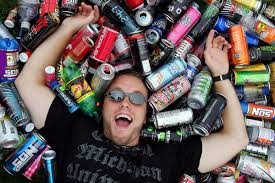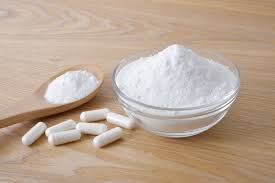Physical Address
304 North Cardinal St.
Dorchester Center, MA 02124
Physical Address
304 North Cardinal St.
Dorchester Center, MA 02124

Whether pulling an all-nighter or pushing through a mid-afternoon slump, energy drinks are the perfect pick-me-up. But behind that burst of energy lies a potent mix of caffeine , sugar, and stimulants that can raise your blood pressure and negatively affect your health.
“Caffeine causes a short-term spike in blood pressure by interfering with adenosine, a substance that promotes blood vessel relaxation,” explained Michelle Routhenstein, MS, RD, CDCES, a cardiology dietitian at Entirely Nourished.
This interference leads to blood vessel constriction rather than expansion. The body responds by activating the nervous system to produce stress hormones such as adrenaline, resulting in an accelerated heart rate and elevated blood pressure readings.
For individuals without underlying health issues, this blood pressure increase is typically short-lived. According to Dr. Aaron Feingold, a cardiologist at JFK University Medical Center, energy drinks generally cause systolic pressure (upper reading) to rise by 5 to 15 mmHg and diastolic pressure by 5 to 10 mmHg within sixty minutes of consumption.
However, those already dealing with high blood pressure or other heart-related conditions face greater risks, particularly with daily energy drink consumption.
“While frequent users might build tolerance to some immediate effects, sustained elevation of resting blood pressure commonly remains,” Dr. Feingold noted. “The excessive sugar levels promote insulin resistance and weight increase, both of which independently contribute to high blood pressure development.”
Energy drinks contain caffeine levels ranging from 80 to 350 milligrams (mg) per serving, with variations based on brand and container size, according to Routhenstein.
To put this in perspective, a typical 8-ounce coffee cup holds approximately 100 mg of caffeine. This means a single energy drink might deliver caffeine equivalent to one espresso shot or over three coffee servings.
“The significant range in caffeine amounts is troubling since most people don’t know exactly how much caffeine they’re ingesting, and portion sizes frequently exceed the standard measures used in caffeine studies,” Feingold explained.
Additionally, energy drinks often use artificial caffeine that the body may process faster than the natural caffeine found in coffee, Feingold noted.

Energy drinks contain far more than caffeine alone. “Most include extra stimulants such as taurine, guarana, and ginseng that can intensify caffeine’s impact on heart and blood vessel function,” Feingold said.
Routhenstein pointed out that when these stimulants combine with high sugar levels, they can lead to increased blood pressure.
Guarana and taurine may worsen cardiovascular strain by boosting heart rate, magnifying caffeine’s potency, and excessively activating the nervous system.

Energy drinks contain far more than caffeine alone. “Most include extra stimulants such as taurine, guarana, and ginseng that can intensify caffeine’s impact on heart and blood vessel function,” Feingold said.
Routhenstein pointed out that when these stimulants combine with high sugar levels, they can lead to increased blood pressure.
Guarana and taurine may worsen cardiovascular strain by boosting heart rate, magnifying caffeine’s potency, and excessively activating the nervous system.
TO READ MORE, OPEN THE LINK BELOW:
https://www.verywellhealth.com/do-energy-drinks-raise-blood-pressure-11747058